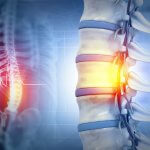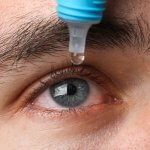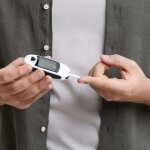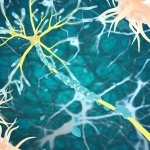A woman who lives in the US has been identified as a close match for young Adeline. The procedure will help to restore the body’s ability to make healthy blood cells.
What is myelodysplastic syndrome (MDS)?
Myelodysplasia, also known as myelodysplastic syndrome or MDS, is a group of rare blood cancers in which the human body does not have enough healthy blood cells.
There are many different types of MDS which exist, ranging from mild to severe cases. The condition can affect people of any age, however it is most common in adults aged between 70 and 80 years old.
What happens in MDS?
Normally within our bone marrow there is spongy tissue, which is vital to producing:
- healthy red blood cells that carry oxygen around the body,
- white blood cells to help fight off infection,
- and platelets to help blood clot.
However, in MDS, the bone marrow is unable to create enough of these healthy functioning blood cells and instead makes immature and abnormal cells. Gradually the bone marrow is taken over by these malfunctioning cells and pushes out the healthy blood cells.
This results in the number of healthy cells that make their way into the bloodstream lower and lower. When white cells numbers become very low, the body is unable to fight out infection as normal.
Some people who suffer from the condition can develop acute myeloid leukaemia (AML) – a cancer of white blood cells. However, the risk of this happening is dependent on what type of MDS and the number of blood cells the patient has.
How can stem cells help to treat myelodysplasia?
The treatment options for MDS are dependent on the type of MDS you have, however the main aim of any treatment is to get the number and type of blood cells in the bloodstream back to normal.
Supportive treatments that aim to control the symptoms of MDS include transfusions, growth factors and antibiotics. Treatments using chemotherapy are often given if the type of MDS increases a patient’s risk of AML. This helps to destroy the immature blood cells and stops them from growing.
However, the only way for patients of having a chance to be cure of MDS is to undergo intensive treatment with a stem cell transplant from a donor. In an allogeneic transplant, healthy stem cells are taken from another person whose tissue DNA is identical or almost identical to the patient.
MDS patients will undergo chemotherapy to kill the unhealthy cells and will then receive an intravenous transfusion from the donor. The transplant aims to replace the unhealthy blood-forming cells with healthy stem cells which will travel to the inside of your bones and begin to make healthy blood cells.
Over the coming months, Adeline will be prepared for the stem cell transplant and will undergo the procedure in March. We wish Adeline and her family all the best on their journey.
Request a Welcome Pack
Find out more about cord blood banking by downloading a Welcome Pack now.
References
John Jeffay, ‘Scots toddler who needs weekly blood transfusions to receive life changing stem-cells from US donor’, Daily Record, accessed 29th January 2020, available at:
https://www.dailyrecord.co.uk/news/scottish-news/scots-toddler-who-needs-weekly-21363655
NHS, Myelodysplastic syndrome (myelodysplasia), accessed 29th January 2020, available at:
https://www.nhs.uk/conditions/myelodysplasia/
Cancer Research UK, Treatment for myelodysplasia, accessed 29th January 2020, available at: https://www.cancerresearchuk.org/about-cancer/other-conditions/myelodysplastic-syndromes/treatment
Be The Match, Myelodysplastic syndromes (MDS), accessed 29th January 2020, available at:
https://bethematch.org/patients-and-families/about-transplant/diseases-treated-by-transplant/myelodysplastic-syndromes–mds-/








